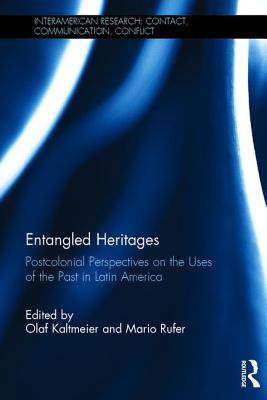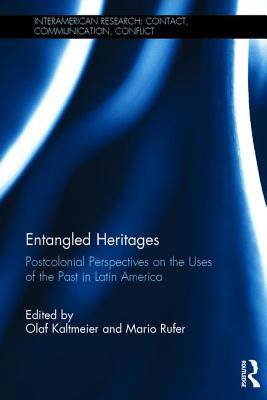
- Afhalen na 1 uur in een winkel met voorraad
- Gratis thuislevering in België vanaf € 30
- Ruim aanbod met 7 miljoen producten
- Afhalen na 1 uur in een winkel met voorraad
- Gratis thuislevering in België vanaf € 30
- Ruim aanbod met 7 miljoen producten
Zoeken
Entangled Heritages
Postcolonial Perspectives on the Uses of the Past in Latin America
Olaf Kaltmeier, Mario Rufer
€ 202,95
+ 405 punten
Uitvoering
Omschrijving
Relying on the concept of a shared history, this book argues that we can speak of a shared heritage that is common in terms of the basic grammar of heritage and articulated histories, but divided alongside the basic difference between colonizers and colonized. This problematic is also evident in contemporary uses of the past. The last decades were crucial to the emergence of new debates: subcultures, new identities, hidden voices and multicultural discourse as a kind of new hegemonic platform also involving concepts of heritage and/or memory. Thereby we can observe a proliferation of heritage agents, especially beyond the scope of the nation state. This volume gets beyond a container vision of heritage that seeks to construct a diachronical continuity in a given territory. Instead, authors point out the relational character of heritage focusing on transnational and translocal flows and interchanges of ideas, concepts, and practices, as well as on the creation of contact zones where the meaning of heritage is negotiated and contested. Exploring the relevance of the politics of heritage and the uses of memory in the consolidation of these nation states, as well as in the current disputes over resistances, hidden memories, undermined pasts, or the politics of nostalgia, this book seeks to seize the local/global dimensions around heritage.
Specificaties
Betrokkenen
- Auteur(s):
- Uitgeverij:
Inhoud
- Aantal bladzijden:
- 212
- Taal:
- Engels
- Reeks:
Eigenschappen
- Productcode (EAN):
- 9781472475435
- Verschijningsdatum:
- 5/07/2016
- Uitvoering:
- Hardcover
- Formaat:
- Genaaid
- Afmetingen:
- 155 mm x 229 mm
- Gewicht:
- 362 g

Alleen bij Standaard Boekhandel
+ 405 punten op je klantenkaart van Standaard Boekhandel
Beoordelingen
We publiceren alleen reviews die voldoen aan de voorwaarden voor reviews. Bekijk onze voorwaarden voor reviews.











